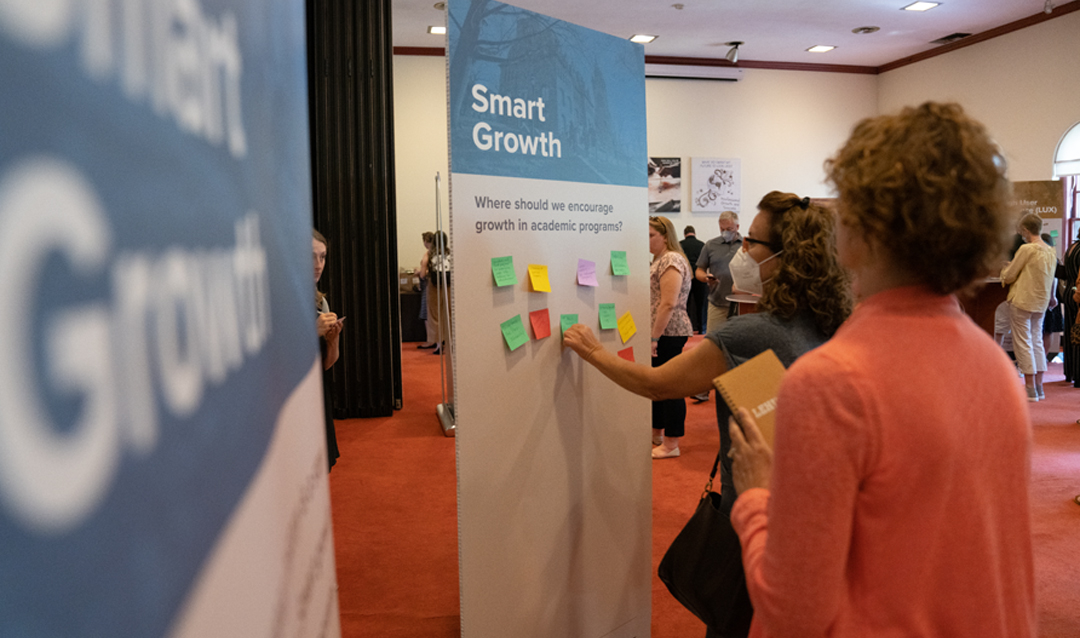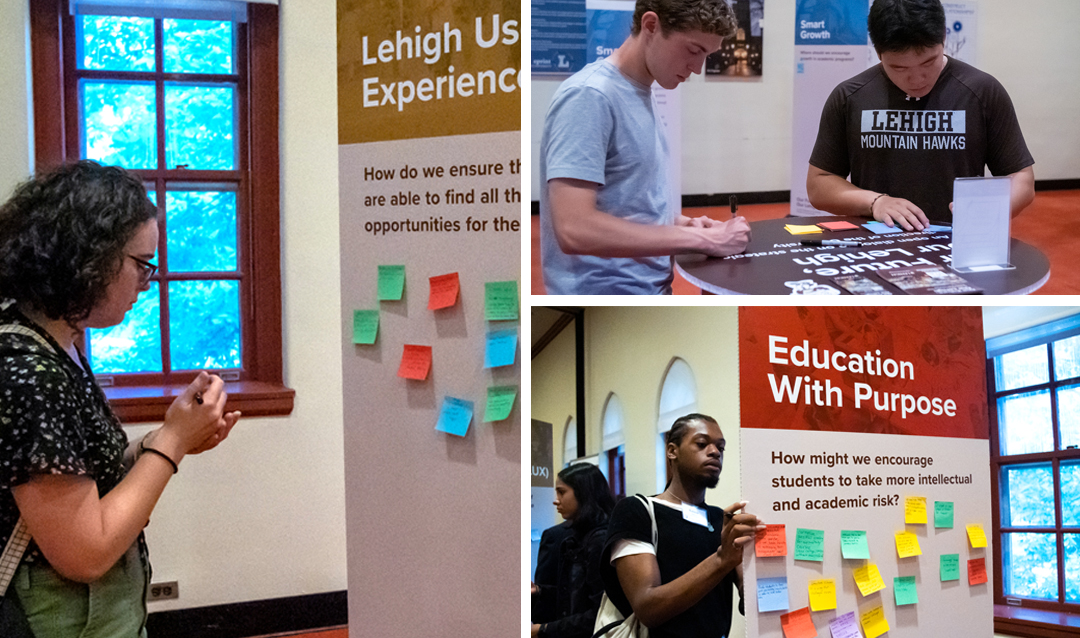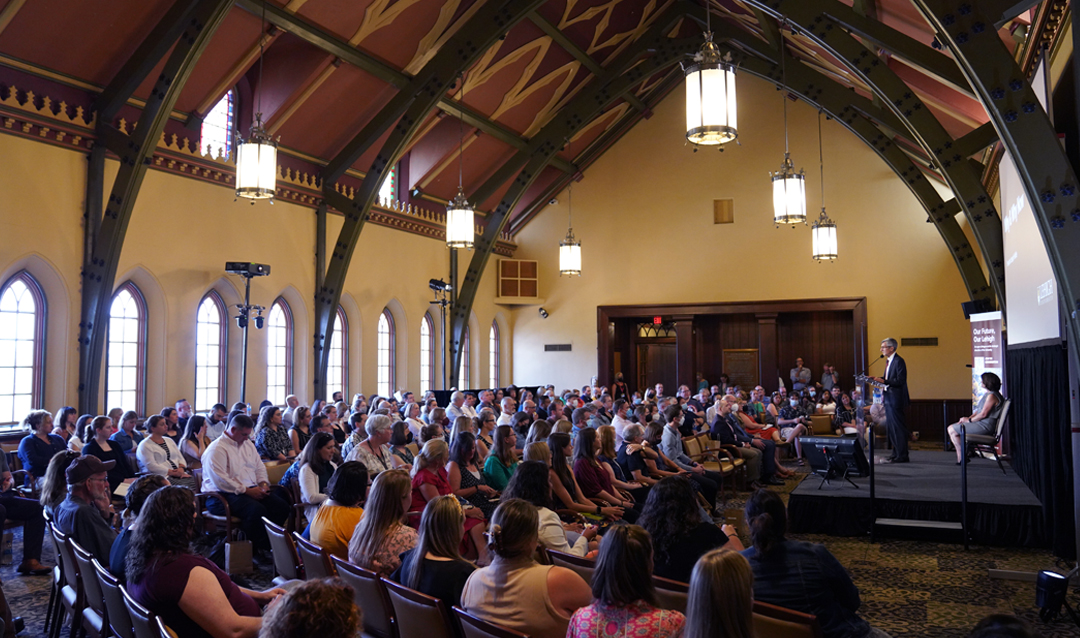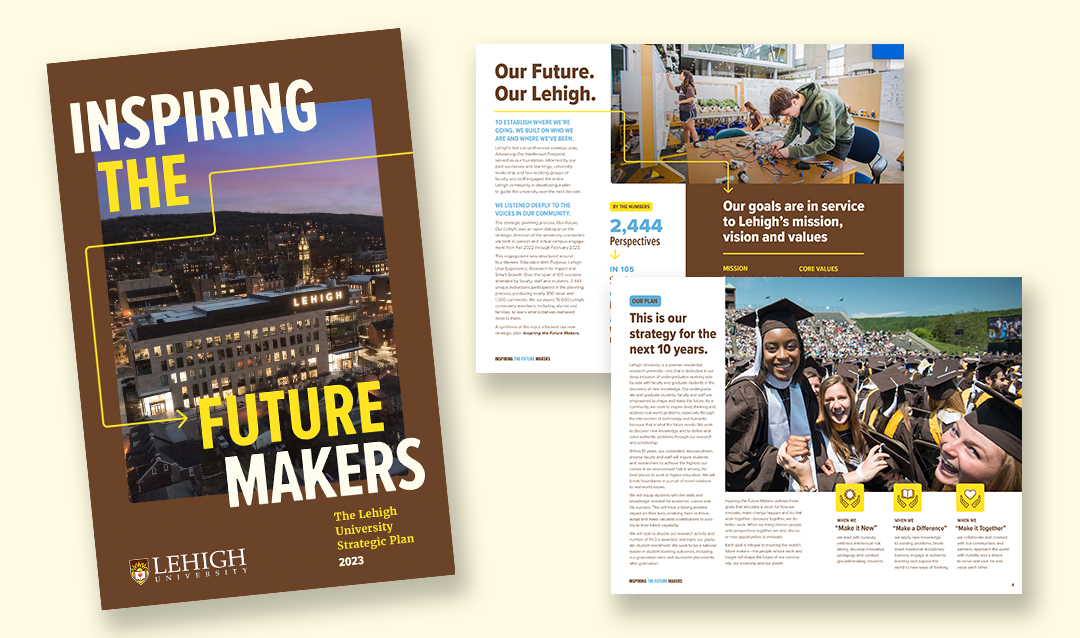Lehigh’s new strategic plan, Inspiring the Future Makers, is built on community and flexibility. In the development phase, university leadership continually sought input and feedback from individuals affiliated with Lehigh and the larger community.
A Foundation Built on Community Input
The planning process was designed with care to engage a wide range of community members through multiple modalities. The comprehensive and transparent process engaged students, faculty, staff, alumni and members of the broader community. These ongoing conversations, which occurred from summer 2022 through spring 2023, distilled Lehigh’s priorities into a focused plan that will allow the university to pivot as necessary.
Twenty five percent of the community (more than 2,400 individuals) engaged in a total of 105 sessions, offered in-person, online, and hybrid: 74 percent of faculty participated; 52 percent of staff; 17 percent of undergraduate students; and 14 percent of graduate students. To supplement these sessions, a web-based idea portal was created to provide individuals a method of sharing ideas and feedback at any time.
“We wanted to offer the community as many options to participate as possible, and provide different avenues to access to the conversation,” said Chris Cook, Vice President of Strategic Planning and Initiatives, who noted that the amount of community engagement was a distinction of the process. “The portal allowed us to continue this conversation asynchronously; regardless of whether a person was ‘in the room’ or not, their voice mattered.”








